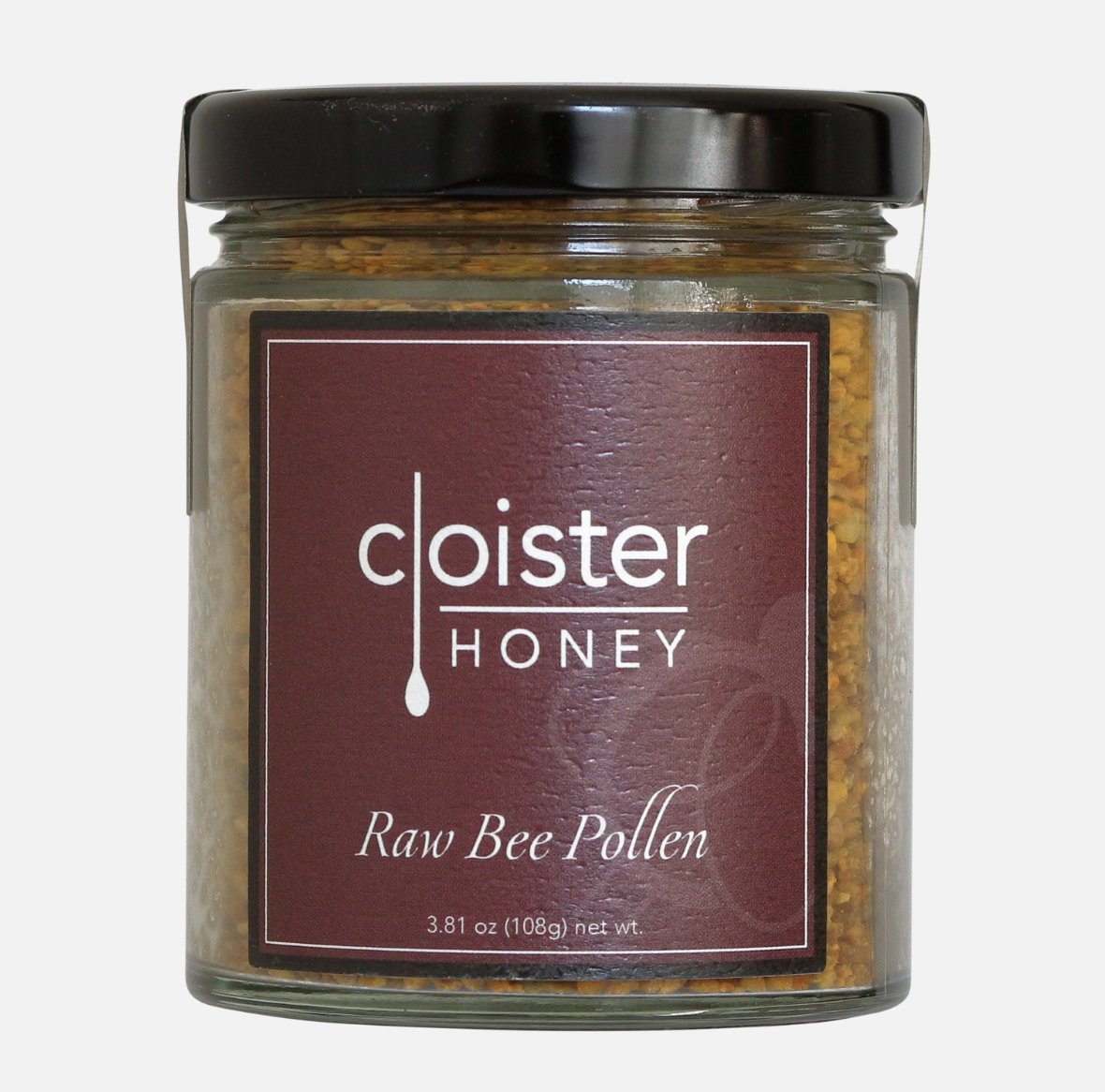Bee Pollen - 3.81 oz
Cloister Honey
Although honey is the most well-known food product associated with bees, bee pollen is quickly gaining in popularity with health-conscious individuals looking to enhance energy and promote well-being.
Bee pollen is the pollen collected by honey bees from flowers and plants as they move from one to another collecting nectar. This pollen accumulates from the many plants visited, so the nutritional contents of bee pollen can vary from bee to bee.
The average nutrient composition will be 20 – 30% protein (derived from amino acids) and 40 – 50% carbohydrates. Bee pollen typically has more protein per ounce than other natural foods and is an easily absorbed source of minerals, proteins and vitamins.
If adding bee pollen is new to your diet, start with low amounts (1/2 - 2 teaspoons per day) and increase over time. The flavor will vary depending on its source, but in general, bee pollen tends to have a slightly sweet, earthy taste with a grainy and chewy texture.
Cloister Honey
Although honey is the most well-known food product associated with bees, bee pollen is quickly gaining in popularity with health-conscious individuals looking to enhance energy and promote well-being.
Bee pollen is the pollen collected by honey bees from flowers and plants as they move from one to another collecting nectar. This pollen accumulates from the many plants visited, so the nutritional contents of bee pollen can vary from bee to bee.
The average nutrient composition will be 20 – 30% protein (derived from amino acids) and 40 – 50% carbohydrates. Bee pollen typically has more protein per ounce than other natural foods and is an easily absorbed source of minerals, proteins and vitamins.
If adding bee pollen is new to your diet, start with low amounts (1/2 - 2 teaspoons per day) and increase over time. The flavor will vary depending on its source, but in general, bee pollen tends to have a slightly sweet, earthy taste with a grainy and chewy texture.
Cloister Honey
Although honey is the most well-known food product associated with bees, bee pollen is quickly gaining in popularity with health-conscious individuals looking to enhance energy and promote well-being.
Bee pollen is the pollen collected by honey bees from flowers and plants as they move from one to another collecting nectar. This pollen accumulates from the many plants visited, so the nutritional contents of bee pollen can vary from bee to bee.
The average nutrient composition will be 20 – 30% protein (derived from amino acids) and 40 – 50% carbohydrates. Bee pollen typically has more protein per ounce than other natural foods and is an easily absorbed source of minerals, proteins and vitamins.
If adding bee pollen is new to your diet, start with low amounts (1/2 - 2 teaspoons per day) and increase over time. The flavor will vary depending on its source, but in general, bee pollen tends to have a slightly sweet, earthy taste with a grainy and chewy texture.
Made in the United States.











